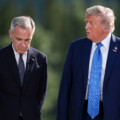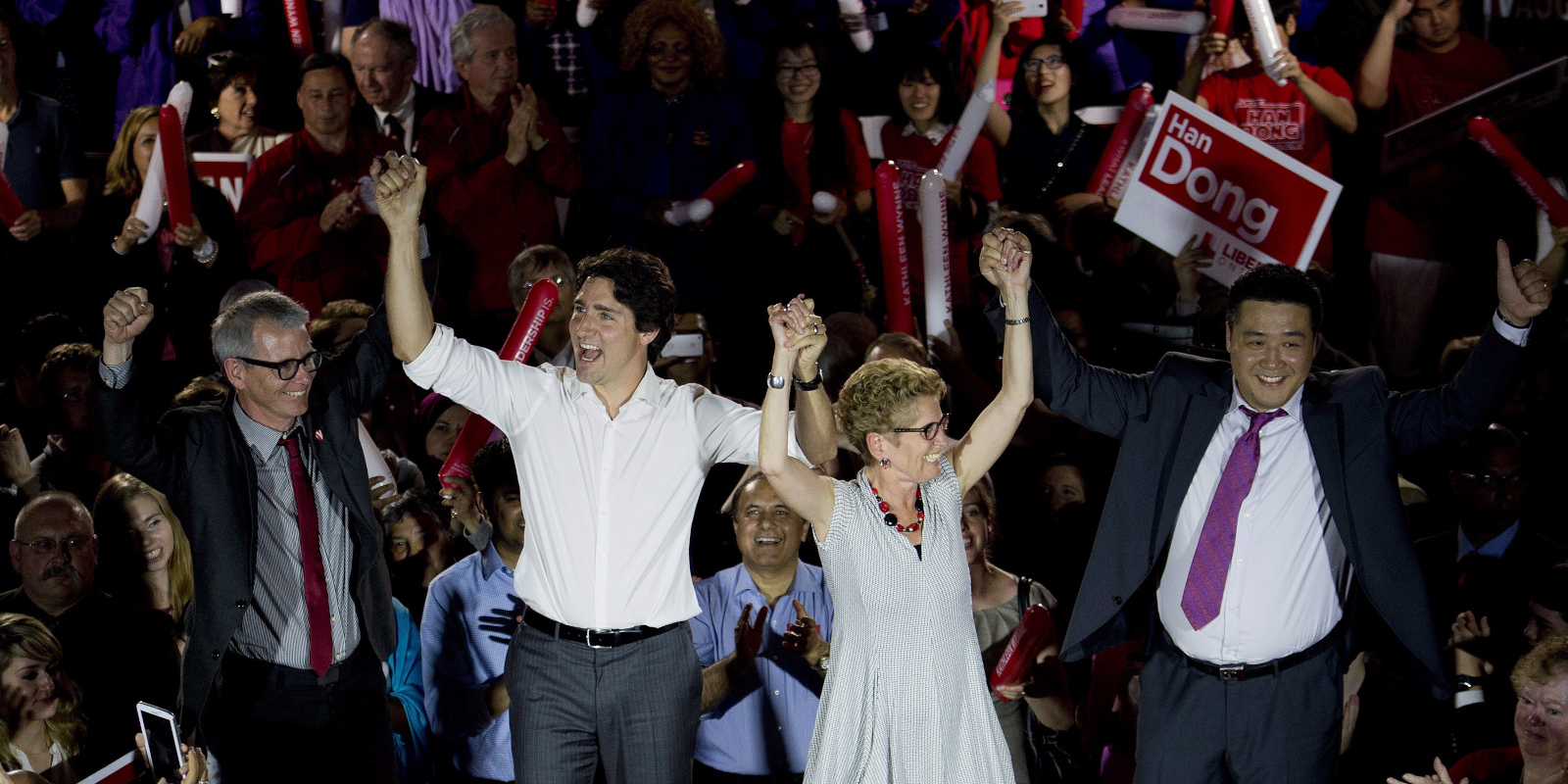As revelations continue to surface about interference by the Chinese government in recent Canadian elections, Canada’s diaspora communities say they’ve been warning about this issue for years.
They also insist that their communities have every right to organize politically and influence policy at every level of government and hope the recent revelations don’t cast a pall over these efforts.
Many members of the Chinese community said they had been warning government and security officials about foreign political interference from the Chinese government for years.
“I can say with confidence that nobody in the Chinese Canadian diaspora was surprised at all when Global News first broke the story,” says Karen Woods, a co-founder of the Canadian Chinese Political Affairs Committee, a Toronto-based non-profit.
Workers at the Chinese consulate in Toronto helped mobilize Chinese-Canadian voters to vote for Liberal candidate Han Dong in the riding of Don Valley North, according to recent reporting by Global News. Also reported were similar actions on behalf of the Chinese government in B.C. that contributed to the defeats of Conservative incumbents Alice Wong and Kenny Chiu in their Richmond ridings.
A string of stories by Global News and the Globe & Mail paint a picture of an intricate interference network set up by Chinese government actors to influence the 2019 and 2021 federal elections to ensure a Liberal victory.
Calgary-based political scientist and Hub contributor Rahim Mohamed believes diaspora politics are organized to obtain greater cultural recognition within a country, or to influence a country’s foreign policy towards the “homeland,” which he notes is the right of any Canadian.
“It may be an unseemly sort of politics to some, but it generally falls within the bounds of legitimate democratic activity,” says Mohamed. “If the recent intelligence leaks are to be believed, this is a clear-cut case of a hostile foreign power meddling in our democratic process, which is a totally different ball game.”
Nonetheless, Mohamed believes diaspora politics can open the door to foreign interference in democratic elections.
“New Canadians have democratic rights just like all other Canadians. If they want to mobilize organically to influence public policy, I take no issue with that,” says Mohamed. “The challenge for policymakers will be dealing with the opportunities these diaspora networks give interloping foreign powers to meddle in our democratic processes.”
With over 300,000 Cantonese speakers, 500,000 Mandarin speakers, and families that arrived last year or five generations ago, Woods says the Chinese-Canadian community is far too diverse to ever be fully under the sway of the Chinese government.
“The Chinese-Canadian diaspora consists of people who have settled in Canada for more than five generations or people like me, who came to Canada at 12,” says Woods, who says most Chinese Canadians do not like the Chinese government. “We are no different than your everyday Canadian…we certainly are part of Team Canada.”
Within the Chinese-Canadian community, Woods says some fault lines have developed between those whose families have lived in Canada for decades and new arrivals, as well as those born in Hong Kong, Taiwan, the Mainland, or outside China.
“Based on these factors, your attitude toward Beijing and the CCP is going to be very different. And that is why you now have HK, Taiwanese voters that will never vote for a mainland candidate in elections,” says Woods.

However, Woods says the Chinese government’s influence has helped silence divergent points of view on Hong Kong’s anti-extradition movement and the treatment of the Uyghur Muslim minority in western China.
Hong Kong-born Canadians and residents, and pro-democracy activists more generally, are often confronted by supporters of the Chinese government when conducting demonstrations in cities like Vancouver and Toronto.
At the height of the 2019 anti-extradition protests in Hong Kong, crowds of pro-democracy and pro-Chinese government demonstrators at a busy Vancouver intersection had to be physically separated by the police.
Kash Heed, a city councillor in Richmond, where over half of the population is of Chinese descent, says that diaspora communities have attempted to influence Canada’s relations with their ancestral homelands for hundreds of years, and this is present in every democracy. He says there is a marked distinction between members of a diaspora community attempting to influence Canadian politics and a foreign government directly interfering in Canadian elections.
“If I can directly relate it to a foreign government, I don’t have a strong indication that they’re actively involved in it (electoral interference),” says Heed. “If I could relate it to foreigners that have come to Canada (and) that have settled in Canada, trying to influence which way we go, yes absolutely,” says Heed.
When the Chinese government does target the diaspora in Canada, Woods says it is mostly the Mandarin-speaking community from Mainland China.
“A large percentage of the Chinese Mainland diaspora certainly still supports Beijing, but I would also like to add that is not necessarily an ideologically driven affinity to the CCP,” says Woods, who notes there are many economic interests at play with China being Canada’s second-largest trading partner. “That adds a lot of weight.”
Mohamed says one example of diaspora politics was the political shift of the Chinese-Australian community in the country’s 2022 federal election.
Pointing out that Australian electoral districts with the largest Chinese-Australian populations swung heavily towards the Labor Party, Mohamed says it was reported as a response to the Liberal-National government’s deteriorating relationship with China.
Labor, which ultimately unseated the Liberal-National government, has pursued a more moderate relationship with Beijing but has not reneged on regional security agreements aimed at countering China’s geopolitical ambitions in the Pacific region.
Recommended for You

Need to Know: Mark Carney’s digital services tax disaster

Theo Argitis: Carney is dismantling Trudeau’s tax legacy. How will he pay for his plan?

Kirk LaPointe: B.C.’s ferry fiasco is a perfectly Canadian controversy

‘I want to make Canada a freer country’: Conservative MP Andrew Lawton talks being a newbie in Parliament, patriotism, and Pierre Poilievre’s strategy




